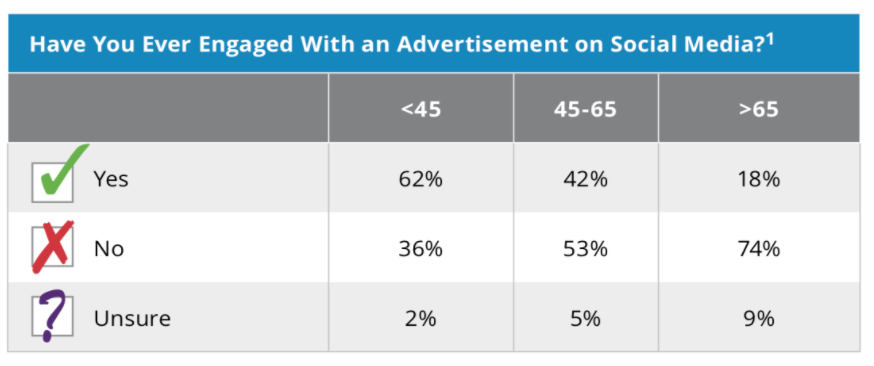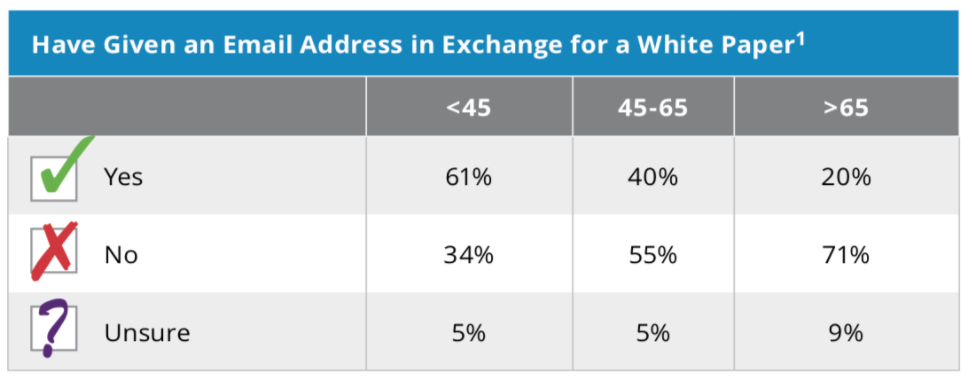With more advisors getting into social media, we were curious about the affluent’s willingness to engage with digital advertisements. To gain insights, we researched 403 investors with a minimum of $500,000 in investable assets. Our biggest question was … are the affluent receptive to digital advertising?
Interaction With Digital Ads Largely Depends on Age
While this might seem obvious, the data behind it is interesting and solidifies what you probably know intuitively. Sixty-two percent of those under 45 (with $500,000+ investable) have engaged with an advertisement on Facebook, LinkedIn or Instagram, compared with 18% of those over 65. Those numbers suggest that affluent investors, especially the younger ones, are willing to engage with digital ads.
It strikes us as even more compelling when you consider that advertising on these networks is relatively inexpensive when compared with traditional advertising. We also expect to see the effectiveness of these ads rise as younger investors increasingly reach the level of assets needed for professional money management.

A Large Percentage Are Willing to Exchange an Email for a Lead Magnet
Many social media advertising campaigns follow a similar formula. The formula is: I’ll give you something of value if you give me your contact information. This often comes in the form of a white paper, webinar, ebook, video or other “lead magnet.” A lead magnet is an incentive that marketers offer prospects in exchange for their email address or other contact information.
So, what percentage of investors have taken part in this?
Once again, age plays a factor; 61% of those under 45 have provided their email to get a white paper, versus 20% of those over 65.

Marketers often run into issues with junk emails (e.g., [email protected]). When you’re building your next campaign, consider not giving instant access to the lead magnet and instead opting for an automated email sent to the email address provided. A button making this clear, like “Where do we email your guide?” should do the trick.
In our opinion, now is a great time to learn how advertising online works. Don’t forget, once your ads are launched, you’ll need a strong nurturing process as well.
Kevin Nichols is a partner with Oechsli, a firm that specializes in research and training for the financial services industry. @KevinANichols www.oechsli.com





